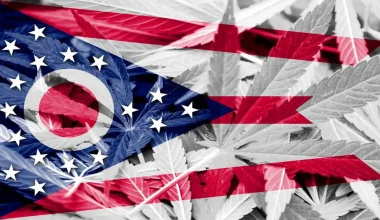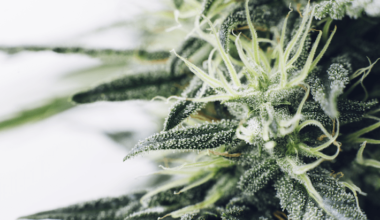Editor’s note: This article was contributed by Johnny Green, Media and Content Director for the International Cannabis Business Conference.
Policymakers in the Czech Republic recently expressed a strong desire to legalize cannabis for adult use, building on the momentum occurring across the border in Germany. Germany is trending towards adult-use legalization and the Czech Republic has expressed its own plans for legalization. However, the Czech Republic’s Ministry of Agriculture recently announced that it will be instituting new restrictions on CBD products, which is leaving many international cannabis observers scratching their heads.
“The State Agricultural and Food Inspection … is preparing measures of a general nature, which will prohibit the marketing of cannabidiol (CBD), other cannabinoids obtained from hemp, and products containing these substances. According to the EU, food with CBD cannot be marketed in any EU country. Their effects on human health have not been sufficiently scientifically investigated,” a recent Ministry of Agriculture press release (translated from Czech to English) stated.
Previous messaging
Back in October 2022, the Czech Republic’s top drug policy expert seemed optimistic about his country’s chances of passing an adult-use legalization measure in the near future.
“At the moment, there is a political consensus for me to create this proposal for the regulation of cannabis, a substance which is illegal at the moment. We want to regulate it with the help of the market and we believe that this regulation will be more effective than the current ban,” Czech drug policy leader Jindřich Vobořil told members of the press at the time.
Immediately following a legalization presentation to Germany’s federal cabinet by Health Minister Karl Lauterbach in October 2022, Vobořil posted on his Facebook page that “Germany and the Czech Republic [will] go to a regulated market at the same time.”
“Today, Germany announced through the mouth of its Minister of Health that it is launching the legislative process. It won’t be quite the free market, as some would expect. For example, colleagues from Germany talk about the allowed amount, they do not have cannabis clubs that we are supposed to. I’m pretty sure I want to hold on to cannabis clubs until my last breath. I find this model very useful, at least for the first years.” — Vobořil, in the October 26, 2022 Facebook post
“However, we are in live contact with our colleagues from Germany and have repeatedly confirmed that we want to coordinate ourselves, even practically by consulting each other on our proposals. I will also want their expert assessment of our proposals, which we will prepare in the above mentioned working expert group,” Vobořil also stated in his Facebook post.
Conflicting goals?
In addition to Vobořil’s comments late last year, government officials in the Czech Republic indicated mere weeks ago that they will be pursuing an adult-use legalization model that involves a consumer registry. And while pursuing a CBD ban while also simultaneously pursuing adult-use legalization, the Czech Republic recently punished a cannabis educator for “inciting and promoting toxicomania.”
It is clear that much of the rhetoric coming out of the Czech Republic right now seems to be conflicting. Ultimately, the Czech Republic needs what every other country in Europe needs – a comprehensive national cannabis policy that is based on reason, logic, compassion, and sensibility.
The European continent is experiencing a big push right now to try regulating cannabis instead of prohibiting it in order to boost public health. The current continental legalization strategy, which is being led by Germany, is straightforward: the strategy recognizes that adult cannabis consumption will always occur and that it is better for overall public health outcomes for the products being consumed to be regulated versus unregulated. Clearly, that logic applies to hemp-derived products as much as it applies to products derived from cannabis plants that contain amounts of THC that put it above the legal hemp threshold (typically between .2% and 1% depending on the jurisdiction).
Readers can learn more about what is going on in the Czech Republic, and how it fits into the larger legalization push in Europe, at the upcoming International Cannabis Business Conference in Berlin on June 29-30.
Get daily cannabis business news updates. Subscribe
Medical Disclaimer:
The information provided in these blog posts is intended for general informational and educational purposes only. It is not a substitute for professional medical advice, diagnosis, or treatment. Always seek the advice of your physician or other qualified healthcare provider with any questions you may have regarding a medical condition. The use of any information provided in these blog posts is solely at your own risk. The authors and the website do not recommend or endorse any specific products, treatments, or procedures mentioned. Reliance on any information in these blog posts is solely at your own discretion.






